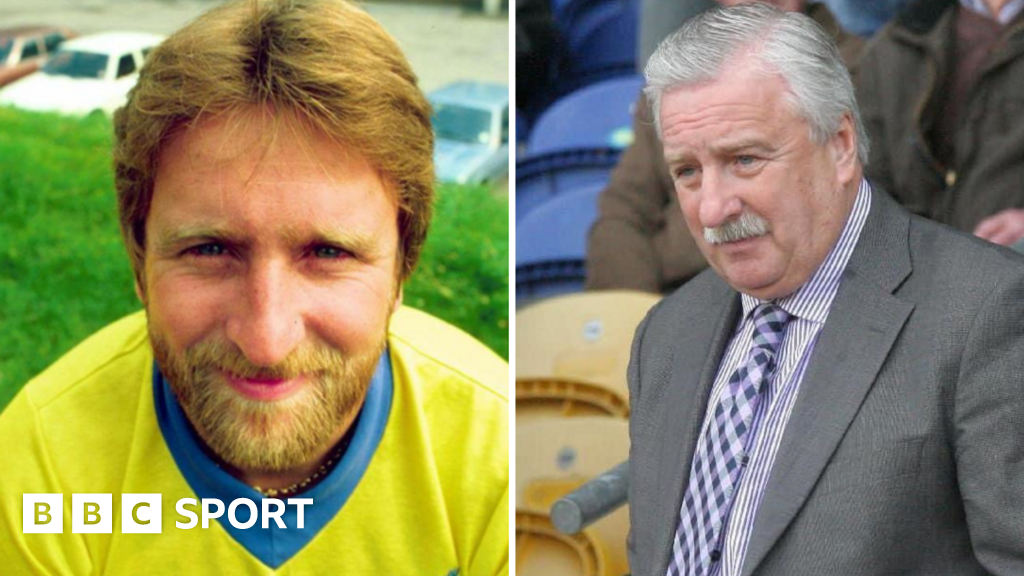Judith Gates, whose husband Bill retired from football the day before his 30th birthday due to persistent migraines after playing over 200 times for Middlesbrough, set up the Head Safe Football foundation following confirmation of his CTE diagnosis.
“In the last two or three years he could no longer talk, no longer walk, had difficulty swallowing – and so the physical symptoms kicked in alongside the cognitive ones,” Judith says. “You’re watching the person that you’ve loved melt away, and all that made them who they were gradually diminish.
“CTE is brutal. It brings mood issues. Bill went through a time of suicidal ideation, where he begged us to find him a gun. I had to hide every paracetamol in the house.”
Earlier this month The Telegraph reported, external that the FA tried to prevent an inquest into the role played by football in Bill’s death.
“This is an emotional situation,” Judith says. “To hear the FA wishing to disregard our family’s desire for the truth to be told about Bill was hurtful.”
A spokesperson for the FA told the BBC: “We reiterate our sympathy for the Gates family. Whilst we do not think it is appropriate to comment on an ongoing inquest, our position is that the question of any potential links between football and neurodegenerative disease is clearly a matter of public interest which needs to be handled appropriately and properly.”
Judith has found purpose in trying to ensure no other footballers suffer the same fate as Bill. Head Safe Football aims to safeguard players, professional or amateur, from CTE by educating them about ways heading can be reduced in training.
“I’m absolutely certain that it’s a ticking time bomb,” Judith says. “I spend a fair bit of time with players who are in between playing the game and having demonstrable symptoms. What I’m finding from conversations with them is they are scared to death.”
For Professor Stewart, focusing on reducing less crucial contact between head and ball is the key.
“A significant proportion of footballers may be affected by this, if they get to the age where dementia is a problem,” he says.
“We sat with some of the families and worked out that some players may head the ball 70,000 times over a 10-15 year career, but only a fraction of those – one or two thousand of them – may have occurred during matches. So, we can get rid of 90% to 95% of head impacts just by keeping heading for the match.”
There are rules across England, Scotland and Wales restricting heading in children’s games, while different restrictions are in place around training in the English and Scottish professional games.
All three widows want heading reduced, rather than banned, and more education of young players about the dangers of CTE.
A spokesperson for the FA told the BBC: “We continue to take a leading role in reviewing and improving the safety of our game. This includes investing in and supporting multiple projects in order to gain a greater understanding of this area through objective, robust and thorough research.
“We have already taken many proactive steps to review and address potential risk factors which may be associated with football whilst ongoing research continues in this area, including liaising with the international governing bodies.”

